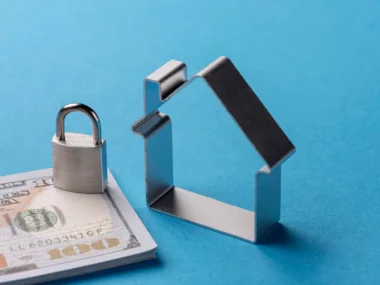Table of Contents
Introduction
Dealing with multiple debts can be overwhelming, and it’s crucial to prioritize them correctly. This article explores the 8 consequences that can arise from paying off the wrong debt first.
By understanding the importance of debt prioritization, identifying the right debts, and employing the right strategies, individuals can avoid these pitfalls and achieve their financial goals more effectively.
Understanding Debt Prioritization
Debt prioritization refers to the process of strategically deciding which debts to pay off first. It is a fundamental step in managing financial obligations. By creating a debt repayment plan, individuals can gain control over their finances and make informed choices to minimize interest payments and achieve the best long-term outcomes.
Identifying the Right Debts
It’s essential to consider the various types of debts and their individual characteristics when prioritizing. Different debts, such as credit card debt, student loans, and mortgages, have distinct implications and should be assessed accordingly. Factors like interest rates, repayment terms, and potential consequences need to be carefully weighed to determine which debts should take priority.
Consequences of Paying Off the Wrong Debt First
1. Increased Interest Payments
When individuals incorrectly prioritize debts, they may overlook paying off high-interest debts first. By not tackling these financially burdensome obligations, interest payments accumulate, exacerbating the overall financial situation. It’s crucial to address high-interest debts as a priority to mitigate the long-term costs associated with them.
2. Extended Debt Burden
Neglecting other debts while focusing on paying off the wrong one can lead to an extended debt burden. By not addressing all outstanding obligations concurrently, individuals risk prolonging the overall repayment process. This delays their ability to become debt-free and can hinder their financial progress.
3. Negative Credit Score Effects
Prioritizing the wrong debt ca have detrimental effects on an individual’s credit score. Missing payments allocating resourc toward the wron deb f result i negative credit reporting. This, i turn, limits future borrowing opportunities and can impact personal finances for years to come.
Case Studies and Examples
Real-life scenarios provide valuable insights into the consequences faced by those who paid off the wrong debt first. By examining these examples, readers can learn from others’ mistakes and make more informed decisions regarding debt prioritization, avoiding similar repercussions in their own financial journeys.
Strategies for Correct Debt Prioritization
Avalanche Method
The avalanche method of debt repayment involves focusing on high-interest debts first. By tackling these debts with the highest interest rates, individuals can minimize interest payments and accelerate their progress towards becoming debt-free. This approach optimizes financial resources and yields the most significant savings over time.
Snowball Method
The snowball method, on the other hand, emphasizes paying off small debts first. By prioritizing debts with lower balances, individuals experience a psychological boost from a sense of accomplishment, which can motivate further progress. While it may not yield the most significant financial savings, it provides the reinforcement needed to stay committed to the debt repayment journey.
Combination Approach
Combining elements of both the avalanche and snowball methods can provide a balanced approach to debt prioritization. By strategically evaluating each debt’s unique characteristics, individuals can customize their repayment plan to suit their specific circumstances. This combined approach allows for a comprehensive and flexible strategy that considers both financial savings and personal motivation.
Importance of Seeking Professional Advice
Financial advisors play a valuable role in helping individuals prioritize their debts effectively. Their expertise and objectivity can provide valuable insights and guidance, taking into account factors that may not be immediately apparent. If individuals find themselves unsure about debt prioritization or overwhelmed by their financial situation, seeking professional advice can be an essential step towards achieving financial stability.
How to Recover from Paying Off the Wrong Debt First
If debts were not prioritized correctly, it’s crucial to take action to rectify the situation. Steps such as reassessing the debt repayment plan, redistributing resources, and making necessary adjustments can help realign priorities and get back on track. Employing strategies like the avalanche, snowball, or a combination approach can assist in regaining control over debt management.
Long-Term Consequences of Debt Mismanagement
1. Difficulty in Achieving Financial Goals
Mismanaged debts can profoundly impact an individual’s ability to achieve long-term financial goals. Whether it’s saving for a down payment on a house, planning for retirement, or any other financial milestone, the burden of debt can impede progress and delay achieving these objectives. Properly managing debts is crucial for ensuring holistic financial success.
2. Increased Stress and Mental Health Issues
The toll of debt mismanagement extends beyond financial consequences and can take a significant toll on mental well-being. Constant worry, anxiety, and stress associated with overwhelming debts can lead to mental health issues. It is important to recognize this impact and proactively adopt strategies to cope with debt-related stress, such as seeking support from loved ones or engaging in stress-relieving activities.
3. Potential Legal Consequences
Debt mismanagement can potentially result in legal actions taken against individuals. Failure to repay debts, ignoring creditor demands, or engaging in fraudulent behavior may lead to lawsuits, wage garnishment, or even bankruptcy. Understanding the legal implications of debt mismanagement is crucial to avoid potential legal consequences that can further compound the adverse effects of debt.
Summary
Paying off debts in the wrong order can have serious consequences. Increased interest payments, extended debt burdens, negative credit score effects, and other long-term repercussions can significantly hinder an individual’s financial progress.
By understanding the importance of debt prioritization, seeking professional advice when needed, and employing effective debt repayment strategies, individuals can navigate their financial obligations more effectively and achieve their long-term goals.
Frequently Asked Questions
How does debt prioritization affect my credit score?
Debt prioritization can indirectly affect your credit score. By focusing on paying off high-interest debts or those in default, you can reduce your overall debt burden and improve your credit utilization ratio. Additionally, consistently making on-time payments and reducing your outstanding debt can positively impact your credit score over time.
Can I apply different debt repayment strategies for each type of debt?
Yes, you can apply different debt repayment strategies for each type of debt. Different debts may have varying interest rates, payment terms, or consequences for non-payment. For example, you might prioritize paying off high-interest credit card debt aggressively while making minimum payments on low-interest student loans. Tailoring your strategies to each debt can help you save money on interest and achieve your financial goals more efficiently.
What are the potential downsides of the snowball method?
While the snowball method can be effective for debt repayment, it’s important to consider its potential downsides. One drawback is that it doesn’t prioritize debts based on interest rates. Consequently, you may end up paying more in interest over the long term. Additionally, the psychological motivation of seeing small debts disappear quickly might overshadow the financial benefits of tackling higher-interest obligations first.
When should I consider seeking professional financial advice?
Seeking professional financial advice can be beneficial in various situations, including:
- When you have significant debt and are struggling to manage it effectively.
- When you’re unsure about the best debt repayment strategy for your specific circumstances.
- When you’re considering major financial decisions, such as investing, purchasing a home, or starting a business.
- When you need help creating a comprehensive financial plan or budget.
- When you’re experiencing financial hardship, such as job loss or a sudden change in income.
Can debt prioritization strategies change as my financial situation evolves?
Yes, debt prioritization strategies can and should change as your financial situation evolves. As your income, expenses, and goals change, it’s important to reassess and adjust your debt repayment strategies accordingly.
For example, if you experience a significant increase in income, you might consider accelerating your debt repayment efforts. Likewise, if you face a financial setback, you might need to temporarily adjust your priorities and focus on maintaining essential payments. Regularly reviewing and adapting your strategies ensures they remain aligned with your current financial circumstances and objectives.






